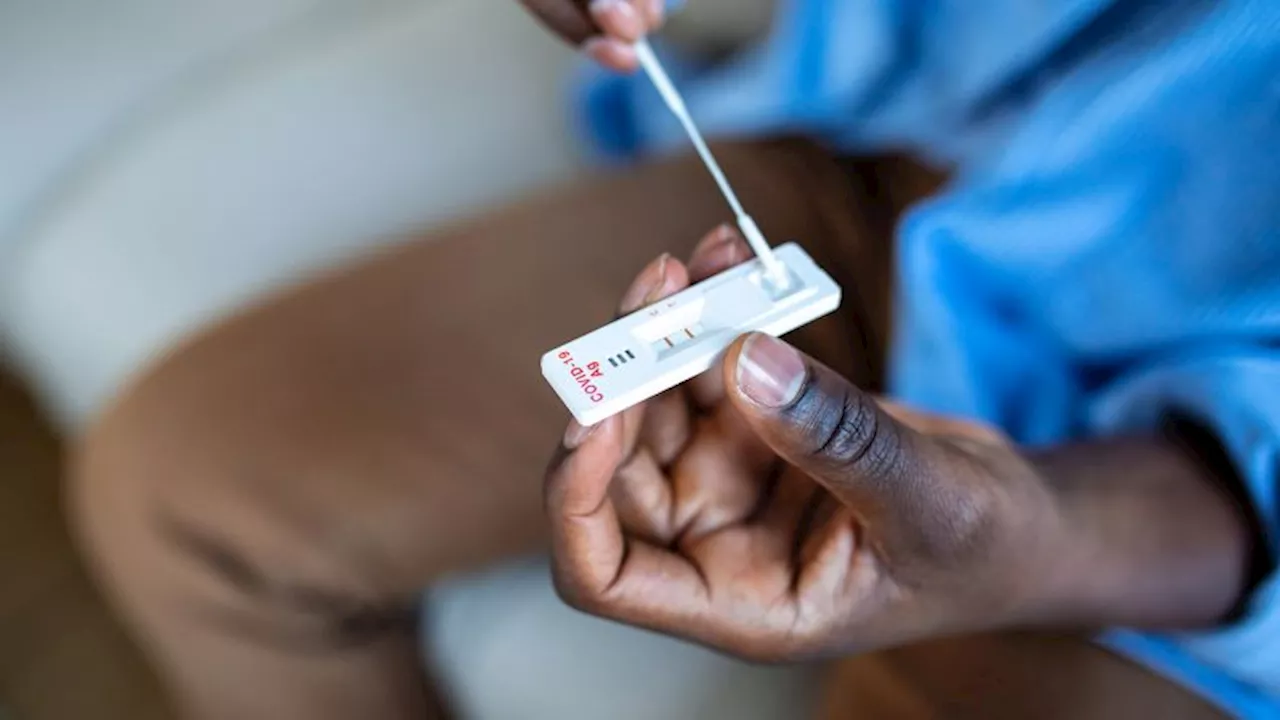As the U.S. witnesses a surge in winter viruses, including RSV, flu, COVID-19, and norovirus, health experts warn that heart disease symptoms can easily be mistaken for those of respiratory illnesses. The American Heart Association (AHA) highlights the increased risk of heart attack and stroke following viral infections, emphasizing the importance of vigilance and seeking medical attention for persistent symptoms.
Health officials are reporting a surge in winter viruses , prompting health experts to warn that heart disease symptoms can sometimes mimic respiratory illnesses. Four viruses are circulating in the U.S. at 'very high levels,' sparking concerns of a possible 'quademic.' These viruses include respiratory syncytial virus ( RSV ), influenza, COVID-19 , and norovirus.
The American Heart Association (AHA) has confirmed that certain viruses have been linked to an increased risk of heart attack and stroke. 'The highest risk is within three days of infection, but remains heightened for up to 90 days,' the AHA stated on its website. Dr. Johanna Contreras, a cardiologist at Mount Sinai Fuster Heart Hospital in New York City, has observed patients mistaking virus symptoms for serious heart complications. Some patients who experience shortness of breath, wheezing, coughing, swelling, and palpitations may assume their symptoms are linked to a cold when these could be signs of heart failure, she said in a release sent to Fox News Digital. Weakness, fever, dizziness, and chest pain could also mask potentially life-threatening conditions. These may include pulmonary embolism (a blood clot in the lungs), heart attack, pericarditis (inflammation around the lining of the heart), heart failure, or viral myocarditis (inflammation of the heart muscle), according to Mount Sinai cardiologists. Viruses can provoke an inflammatory condition, which can lead to or worsen cardiac conditions, according to Dr. Icilma Fergus, director of cardiovascular disparities for the Mount Sinai Health System in New York City. 'Typically, those that make one sicker and promote a hypercoaguable state (an increased tendency to form blood clots) are more dangerous,' she told Fox News Digital. Dr. Anuradha Lala, another cardiologist at Mount Sinai in New York City, noted that the body's immune system creates an inflammatory response to fight and eliminate the virus — but this inflammation could inadvertently harm cardiac tissue. 'If you have a known heart condition, viral infections can bring on exacerbations — or a worsening of the underlying tissue — whether it is atrial fibrillation, coronary heart disease or heart failure,' she noted in the release. Dr. Contreras shared a recent case of a patient who experienced severe shortness of breath, weakness, palpitations, and fatigue, fearing they had heart failure. 'After they had bloodwork taken, there was a frantic moment when we could not reach the patient to share results that revealed a significantly elevated troponin level, which can be linked to a heart attack,' she shared in the release. 'Although we suspected the worst, we eventually reached the patient and they were hospitalized with influenza A and severe viral myocarditis. They were treated appropriately and luckily there was a good outcome.' Older adults — as well as those who are immunocompromised or have a history of heart issues or other underlying conditions — are particularly at risk for cardiac complications, according to the Mount Sinai cardiologists. 'Anyone is susceptible, even healthcare providers — and anyone who is not paying attention to their symptoms may get sick with potentially life-threatening complications,' Fergus said in the report. Patients who notice persistent chest pain and palpitations after a viral illness should consider ruling out myocarditis, which is inflammation of the heart muscle, according to Dr. Contreras. It is important to discuss any post-virus symptoms with a healthcare professional, especially for those in high-risk groups, health experts told Fox News Digital. Specific symptoms that warrant emergency attention include chest pain, difficulty breathing or staying awake, feelings of passing out, or extremes of blood pressure. Swelling of the legs may also be linked to cardiac events — especially if there is also an underlying heart condition or risk factors such as obesity, diabetes, or a family history of heart disease, Dr. Lala stated in the Mount Sinai release. During the cold, damp winter months, certain viruses may thrive and become more virulent, Dr. Fergus told Fox News Digital. 'People should stay vigilant and observe for symptoms of an impending cold,' she advised. 'Get tested to know what virus you have, as the antiviral treatments are different,' Dr. Fergus concluded.
Heart Disease Winter Viruses RSV Influenza COVID-19 Norovirus Symptoms Medical Advice Health Risks
United States Latest News, United States Headlines
Similar News:You can also read news stories similar to this one that we have collected from other news sources.
 Winter Virus Season Arrives: Navigating the Surge in IllnessesAs cases of acute respiratory illness, COVID-19, and seasonal flu rise in the US, determining the specific illness causing symptoms becomes crucial. This article explores the need for testing, the differences between respiratory illnesses, and when to seek medical care, featuring insights from CNN wellness expert Dr. Leana Wen.
Winter Virus Season Arrives: Navigating the Surge in IllnessesAs cases of acute respiratory illness, COVID-19, and seasonal flu rise in the US, determining the specific illness causing symptoms becomes crucial. This article explores the need for testing, the differences between respiratory illnesses, and when to seek medical care, featuring insights from CNN wellness expert Dr. Leana Wen.
Read more »
 Winter Virus Surge: When to Test, Treat, and Take PrecautionsThis article provides guidance on managing winter respiratory illnesses like flu and COVID-19, including when to seek testing, treatment options, and preventive measures.
Winter Virus Surge: When to Test, Treat, and Take PrecautionsThis article provides guidance on managing winter respiratory illnesses like flu and COVID-19, including when to seek testing, treatment options, and preventive measures.
Read more »
 American Heart Association Anchorage ambassador speaks on heart health journeyAmbassador Beverly Peterson shared her journey about how she struggled with atrial fibrillation, also known as AFib.
American Heart Association Anchorage ambassador speaks on heart health journeyAmbassador Beverly Peterson shared her journey about how she struggled with atrial fibrillation, also known as AFib.
Read more »
 Lab-Grown Heart Patches Offer Hope for Heart Failure PatientsScientists are exploring the use of lab-grown heart muscle patches as a potential treatment for advanced heart failure. Early results from human and monkey trials show promise, with the patches appearing to support heart function safely. While long-term effects are still unknown, this innovative approach could provide new hope for millions affected by this serious condition.
Lab-Grown Heart Patches Offer Hope for Heart Failure PatientsScientists are exploring the use of lab-grown heart muscle patches as a potential treatment for advanced heart failure. Early results from human and monkey trials show promise, with the patches appearing to support heart function safely. While long-term effects are still unknown, this innovative approach could provide new hope for millions affected by this serious condition.
Read more »
 Heart Eyes Review: A Heart-Popping Holiday HorrorComic Book Movies, News, & Digital Comic Books
Heart Eyes Review: A Heart-Popping Holiday HorrorComic Book Movies, News, & Digital Comic Books
Read more »
 Norovirus Cases Surge in the US this WinterThe US Centers for Disease Control and Prevention (CDC) reports a spike in norovirus cases this winter, with 91 outbreaks recorded during the week of December 5th, an increase from the previous week. Norovirus is the leading cause of foodborne illness in the US, responsible for 58% of infections annually.
Norovirus Cases Surge in the US this WinterThe US Centers for Disease Control and Prevention (CDC) reports a spike in norovirus cases this winter, with 91 outbreaks recorded during the week of December 5th, an increase from the previous week. Norovirus is the leading cause of foodborne illness in the US, responsible for 58% of infections annually.
Read more »
